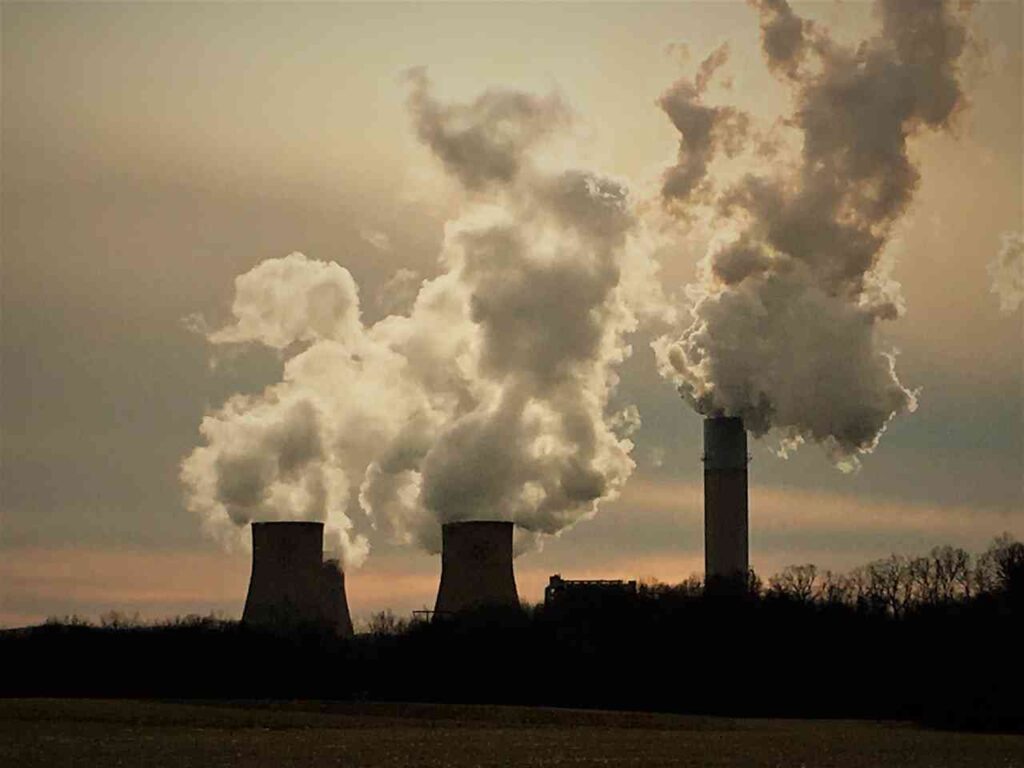World leaders gathered for the UN Climate Change Conference, also known as COP26, to discuss solutions to the growing threat of climate change. Held in Glasgow, Scotland, the aim of the conference was to secure a commitment towards reducing the use of coal-based energy. The phasing out of other fossil fuels such as oil and gas were also addressed, marking it as the first time that they were considered in UN climate talks.
The conference took place from 31st October to 12th November. The participants consisted of government heads, delegates, observers and media representatives. A total representation of almost 200 countries were present. Alongside the discussion, they made a pledge to end public financing for the exploration of new fossil fuel sources. The end of 2022 was set as a tentative deadline to implement this.

Greenhouse gas emissions trap heat close to the surface of the earth and thereby strengthen the greenhouse effect. Left unchecked, it has lead to rising temperatures and devastating climate change. When we look at the impact of fossil fuels across the world, coal production alone accounts for 40% of total emissions. In comparison, oil stands at second place with 32%. In light of this, many countries that are major contributors to coal production have already agreed to the phasing out of coal. An additional 23 new signatories came on board to the Global Coal to Clean Power Transition Statement. The inclusion of 31 sub-nationals and organizations, it brings the total to 77 signatories.
Canada, Italy, the United States of America (USA), Switzerland and New Zealand consist of a few of the participants who have pledged to end financing for overseas fossil fuel exploration and production. The Statement on International Public Support for the Clean Energy Transition saw 39 countries sign on. The promise is to “ensure the world is on an ambitious, clearly defined pathway towards net zero emissions, that is consistent with the 1.5°C warming limit and goals of the Paris Agreement, as well as the best available science and technology.”
While there is consensus in the case of phasing out coal power, not all are on the same page when it comes to a full transition to clean energy. Differences in opinion have emerged, with many making conditional pledges. USA, Costa Rica and Ethiopia, for example, were observed to make the pledge, but it would not be applicable to fossil fuel activity within their own countries. Similarly, major funders of fossil fuels such as China, Japan, and Korea did not sign the commitment at all.
In sharp contrast, in 2020, Denmark had announced that they would pull out of gas and oil exploration entirely. They also cancelled licenses that had been given out to firms, so that they would no longer have permits for fossil fuel exploration. Being the largest oil producer within the European Union, with their own state heavily financed by oil production, they are already aware of the potential impact from this decision.
“We’re the European Union’s biggest oil producer and this decision will therefore resonate around the world,” Denmark’s climate minister, Dan Jørgensen, told BBC.
But with increasing costs, the falling price of oil, and an estimated 4,000 jobs being dependent on the oil sector, Denmark is taking steps to prevent future loss, knowing that change is inevitable. They are planning ahead by creating new jobs in the renewable resources industries, as well as exploring new technologies for capturing carbon emissions.
Related: Germany bans single-use plastics like straws
In Costa Rica, politics comes into play. Known for their use of clean hydro-power and encouragement of green investments, their presence at the forefront of the COP26 climate talks is only expected. But the pressure back home is rising as not everyone is in favor of a complete ban on all fossil fuel exploration. The government faces opposition from other political parties. The Partido Unidad Social Cristiana (PUSC), for example, who are unwilling to support the ban on fossil fuels.
“We are not going to renounce natural gas,” said Pablo Abarca, head of the PUSC.
According to the Minster of Environment and energy, Andrea Meza, many would prefer that the government use oil and gas to boost Costa Rica’s economy instead. Earlier this year, she made her stance on the subject clear, stating that “this is not the right path.”
In Scotland, First Minister Nicola Sturgeon has suggested that Scotland could soon be joining the Beyond Gas and Oil Alliance (BOGA). Created by Denmark and Costa Rica, BOGA is a coalition of nations with the aim of phasing out oil and gas production. This includes adhering to the long term goals established in the Paris Agreement. The key aim being to limit global heating to 1.5°C.
Similar to Costa Rica, public and political pressure has been rising in Scotland as the need to take action grows. The government has recently changed its stance in regards to the licensing of new oilfields. It has chosen to opt against it instead. Party allies, campaigners and environmental activists have welcomed the move.
However, Sturgeon says Scotland will only join BOGA as part of the ‘friend’ tier, in a show of support, rather than as a full member. This would not behold Scotland to BOGA’s goals of an end date for oil production. As a leading oil-producing country, Sturgeon’s primary concern is the livelihood of people who are dependent on the oil and gas industry.
Their ally country Ireland has already taken steps to end fossil fuel exploration. This, despite the fact that its gas fields provides for 60% of their domestic needs. Their plan is to force a focus on renewable energy options, without alternatives to distract them from their goal of reducing carbon emissions.
Related: Greta Thunberg donates $100,000 award to support children during novel coronavirus pandemic
Aside from each countries’ plans to combat climate change or adopt renewable sources of energy, there are countless on-going fossil fuel projects and initiatives which have the capacity to capture carbon emissions. These projects are yet to be discussed at a global level. Some critics have called them a mere distraction from the main goal of achieving a clean energy transition.
Additionally, the funds from the cancellation of overseas projects has not yet been addressed. There is a possibility that these could be redirected towards green projects. But such objectives are still on hold as each head of government grapples with making decisions and the impact to come from it.
The COP26 summit’s main purpose was to recognize the need for immediate actions in adopting renewable energy, while also holding each other accountable in this drive. The discussion and commitments of every participant signifies a major change in priorities. Each government is now tasked with forming strategies based around the climate goals. The aim is to benefit both the global community as well as their own citizens.




